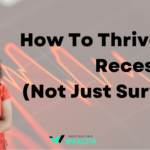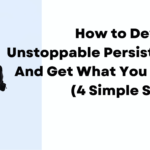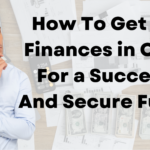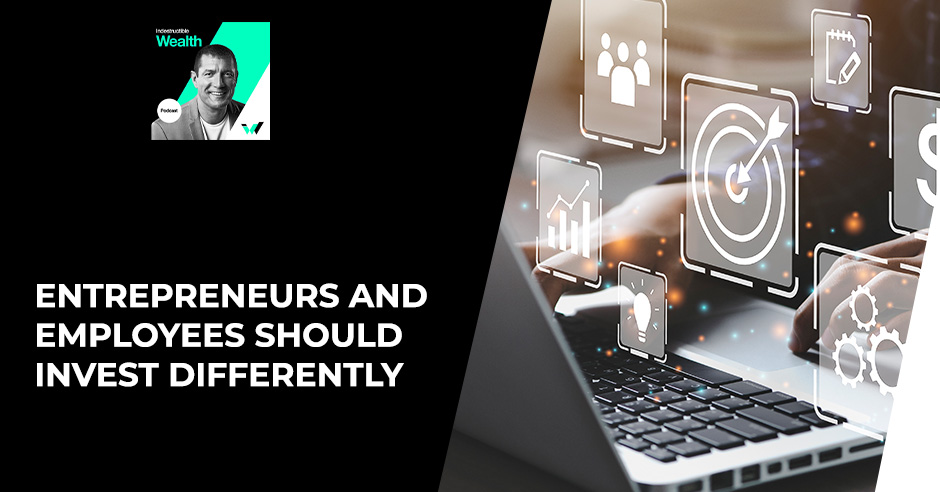
My advice on investing is different for wage earners than it is for entrepreneurs. Today I’m diving into equity and liquidity…. Which is a better option for creating Indestructible Wealth? Tune in.
—
Table of Contents
Listen to the podcast here
Entrepreneurs And Employees Should Invest Differently
I’m excited to announce that I’m finally offering the ability for you to work with me. I know that so many of you, probably every single one of you reading have been thinking every day when you wake up, “When do I get an opportunity to work with Jack? That fucking guy is so awesome.” I think probably very few of you are thinking that, but I do want to give you the opportunity. It is now open. I’ve got two options that you can finally pick my brains, so to speak, if you’d like to get more in-depth mentoring and coaching.
Go to my website, MyIndestructibleWealth.com, and there’s a tab that says, Work With Jackou click that and you’re going to have two options. There’s going to be a one-on-one and you can book a call with me. If you want to book a single, “I want to pick your brain for an hour and see if I’m on the right track or bounce some ideas off you or talk about some strategies in building my business, great.” However, I can serve you. I’ve built four LLCs or S corporations and four different entities over $2 million. I have fourteen different multiple streams of income and a multimillion-dollar portfolio.
You guys already know probably all of that. I’m only telling you that I know what I’m doing. I have so much to learn, but if you want to pick my brain, great. Do it. If you don’t, keep reading the free content and engaging. That’s great too. I don’t care. I’m not doing this for the money, as you guys are probably well-aware. It’s a passion project, but at the same time, I can’t do things for free just like you don’t want to do anything for free either no matter how much you’re passionate about it.
Go to the website, click on the link and follow along. You can watch a video that tells you a little bit more about the mastermind course that I’m offering. That’s an affordable way for you to get in-depth training on multiple streams of income and debt paydown. I talk about all kinds of real estate particularly specific opportunities that you can do. Speculation-type plays like crypto, tech stocks and pre-IPOs. We’re going to talk retirement accounts. We’re going to talk about the fundamentals of investing in you. We’ll talk about charitable giving on that course. It’s a complete course that’s going to take you quite a bit further along in your knowledge of what you need to do in order to build indestructible wealth.
In order to create wealth, equity value growth is absolutely critical. Share on XIt’s very action-oriented and there’s a basic mindset, but it’s not only, “You need to think a more positive-type thing or you need to work on your mindset.” It’s that and it’s about how you’re thinking about your strategy. It’s also specific opportunities that you can take advantage of and start building your own portfolio of assets. If you’re interested, great. Hit the website. If you have any questions on that, you can feel free to email me at [email protected] or you can hit me up on Instagram, for direct messaging. I respond to those on a daily. I just wanted to let you guys know that.
This episode is all about self-storage, which is my favorite investment for multiple reasons, which we’re going to dive into. Why I believe employees and entrepreneurs should invest differently. Now, this particular post on LinkedIn got 30,000 views, which is pretty high for one of my posts. A lot of them get 500 to 1,000. The algorithm caught it because people were engaged in reading it.
I figured that you guys would enjoy this content as well, but before we get into that, you guys know I give you a little update on what’s going on with something entertaining with the Gibson fam. I don’t know if you’d like it. Some of you may think it’s completely boring and skip through that part. That’s fine. You can do that, but I want you to have a little bit of a personal connection to what’s going on in our lives and hopefully, we entertain you a little bit, but we just went to the night of destruction. Doesn’t that sound pretty cool?
I was at the Hartford, Michigan Speedway. This is where they do races and such. This is unique to us because we’re not race fans. It’s not pretty much our style. We love our sporting events, but that is a foreign type of event for us to go to, but one of our buddies invited us to go and it seemed like something fun with the kids. Essentially, it’s a complete and total shit show of 70 cars that are beat-up, junkers that come in. They do all kinds of different events. They race around the track.
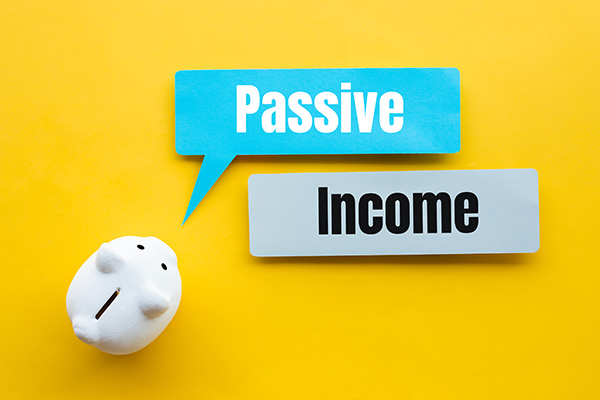
Invest Differently: Passive income producing real estate is a great way to build equity because it’s so much more stable and predictable, and it also cranks out incredible cashflow with tax advantages.
How Employees Should Invest
Being employees, being wage-earner, they don’t have any equity in the company that they work for. In order to create wealth, equity value growth is absolutely critical. We buy stocks so that they increase in value. The equity or your own value in that stock goes up. We buy real estate so that it pumps out cashflow. Yes, but also so that the value of that property goes up. As we also pay down the debt on that property, we create more equity value in the property. Passive-income-producing real estate is probably my favorite way to not only build equity because it’s so stable and predictable and it also cranks out incredible cashflow with tax advantages.
I understand that real estate is not for everybody, but I believe that everybody should be able to find ways to get exposure to owning real estate inside their portfolio. I’m going to do an episode coming up here in the next few days where I’m going to outline what you can do and where you can place your money that’s going to be passive in nature where you don’t have to go out and scout properties, look at properties, analyze deals and put in all of that legwork. You can just buy into things that don’t require so much of your expertise. You’re going to be essentially leveraging off other people’s expertise and leveraging off teams.
That’s critical is that if you’re investing in real estate in a passive nature, you’re more investing into the team that’s behind that real estate venture than you are buying into the property itself because the team is going to determine the success of the operation by far. As an employee, I strongly recommend that in order to build equity of your own and have more control, you start a side hustle. I understand that not everybody has that drive. They don’t have that desire. Maybe it’s not the right timing in their life. Maybe they’re already working 60, or 70 hours a week in their job and it doesn’t make sense. They’ve got kids. They don’t have the ability or the time, energy and all of that to devote. I get it.
The side hustle, the side business is not for everybody. Not everybody is caught out and has that kind of startup drive to do that. It’s totally fine. We all have to do the things that are more authentic to us. My father, for example, was an employee. A wage earner his entire life and he had never had the desire to start his own business. When he retired as a state farm arson investigator, he decided that he wanted to do some consulting, like a side business.

Invest Differently: You need to be creating equity as an employee one way or the other, whether through your own side hustle, through investing in other people’s businesses, a combination of the two, or through investing in real estate.
How Entrepreneurs Should Invest
This is going to happen over the next decade. Companies are going to get disrupted technologically wise and will be gone. They will cease to exist. This is why you need other equity and other streams of income to protect yourself and your family as an employee. Let’s dive into entrepreneurs. What’s the difference? Entrepreneurs need liquidity. Entrepreneurs already have equity. One hundred percent of it, typically.
The number one rule of Warren Buffet, who’s probably the most successful investor in human history, is to never lose money. Share on XIn my case, I have 50% equity. The other 50% of our company, our primary S corp creates a lot of the primary cashflow for us. Our main source of income is owned 50% by my incredibly beautiful wife, the boss. She owns the other 50%. When we started up our S corporation back in 2001, it was cool because I was issued 1,000 shares. I’m like, “I’m a shareholder. I have 1,000 shares.” Now, what were those shares worth at that time? They weren’t worth all that much because the company wasn’t generating that much cashflow.
Those shares were pretty low in their overall value but as the earnings grow of your company, so does the equity value. Remember, all companies are valued based on their earnings. What are earnings? That’s net income. That’s the income that’s left overall expenses are paid. If you have employees or marketing costs or research and development or cost of capital or cost of inventory, all that’s left over at the end of the year, that’s the net operating income or the earnings.
If you have a company and that talk about this in stocks. If it’s developing and creating a million dollars’ worth of earnings, it could be valued at $10 million because a lot of the companies on the stock exchange 10X their actual earnings. That’s what they’re valued at. That’s very common. In a private nature, a private business, usually they’re not valued that high. As your earnings grow in your company, usually private companies are sold somewhere in the neighborhood of 3 to 5 times their net earnings.
The key component though to remember that as your earnings grow in your private business, so does your net worth because the equity value is growing with the growth of your earnings. What entrepreneurs need more than anything, especially early on in the early stages of growing their business is liquidity. Liquidity is your ability to access cash quickly. When you have real estate, it is generally not a very liquid investment. If I have a property and I want to sell it, I list it. I could list it on the MLS. That’s the public listing system where everybody can go and see what’s available for sale.

Invest Differently: What entrepreneurs need more than anything, especially in the early stages of growing your business, is liquidity.
Also, most importantly, I can access my cash quickly. I can call my broker and within five business days, I can have a check or a wire where those funds are borrowed right back out of my policy. It doesn’t interrupt the compounding of the policy and I’m being able to borrow those funds back out to be able to use in my business or if I get a good investment opportunity. I’ve done all of those things. If I need to pay my taxes, because as an entrepreneur, sometimes it’s hard to project where you’re going to come in on your final taxes, I’ve got that liquidity sitting there that I can access a percentage of the cash value of my policy.
As an entrepreneur, you need to be constantly pouring back into yourself to increase your earning power so that you can produce more income. Share on XIf you guys want to get more details on this, I recorded an episode where I interviewed Rachel Marshall of The Money Advantage. She goes into a real deep dive into how this all works. You guys can read that. It’ll explain the whole concept if you haven’t done that yet. Is that the only thing as an investor or as an entrepreneurial investor that you want to invest in? No, of course not. I’ve talked to you guys about all kinds of other opportunities that I think are smart and great ways to go.
However, this provides a great foundation for an entrepreneur to be able to stay invested and a typical policy is going to return somewhere between 4% to 6% type of rate of return. Are these policies exciting? No way. In fact, they bore me to death, but it keeps you invested and if you need the cash, you won’t have to sell in a down market. For example, if you want to get higher than 0.01% return in your savings accounts or checking accounts at the bank and still stay liquid, then you need to be invested in the stock market or cryptocurrency. That’s very liquid. You can sell crypto 24/7. The market never closes, however, that’s extremely out. It’s not a great way to park cash safely when you need it so that you know that the value’s going to be there.
Also, you don’t ever want to put yourself in a position where as an entrepreneur, you need to access cash. You need liquidity, but you have to sell in a down market. That is the absolute worst-case scenario. The number one rule of Warren Buffett, the most successful investor probably in human history is, don’t lose money. This strategy, as an entrepreneur, puts you in a position where you won’t lose money, but you stay invested and you’re getting much higher rates of return than if you were in a traditional bank-type savings account.
I hope this helps you, guys. Also, I would like to add, entrepreneurs need to be investing in themselves. Employees do as well to increase their skills and their income, but I think entrepreneurs need to be putting a lot more money into themselves than employees do because as employees, you’re capped on how much earning power you have. Whereas as an entrepreneur, the sky is the limit. You don’t have any ceiling or cap on how much you can make. It’s all strictly determined by your work ethic, your skills, your mindset and the unique value that you provide to the marketplace your skills and your overall earning power. You need to be constantly pouring back into yourself to increase your earning power so that you can produce more income.

Invest Differently: Entrepreneurs really need to be putting a lot more money into themselves than employees do.
Important Links
- [email protected]
- The Money Advantage
- Instagram – Jack Gibson


